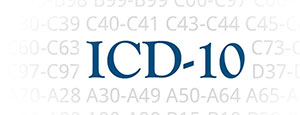ICD-10 Delay Creates Opportunities
Written by Raymond Straub
When President Obama signed H.R.4302 (Protecting Access to Medicare Act of 2014) into law on April 1, 2014, Sec. 212 of the bill effectively delayed ICD-10 coding software implementation until at least October 1, 2015. Many have expressed frustration over this most recent delay, but it also offers opportunities worth considering.
Payers and practices alike now have additional time to prepare for the widespread changes that are coming: massive modifications that have already been adopted by some 25 countries. Therapy practice re-engineering and successful clinical training are essential, because once the switch occurs, “Claims that do not use ICD-10 diagnosis and inpatient medical procedure codes cannot be processed,” according to CMS.
The coming transition is remarkably different from previous ICD-9 software updates, especially where it concerns coverage of services, quality measurement, and reimbursements. The delay gives practices a chance to reassess their documentation systems and consider utilizing the services of an EMR such as ClinicSource, capable of helping a practice navigate the coding sea change to come.
AHIMA has urged its members to “stay the course” of preparing for implementation by “… strengthening clinical documentation improvement programs” and other means. CMS suggests “Working with practice management system and/or EHR vendors/IT staff and coders/billers to develop and test processes and systems using ICD-10 CPT codes.”
The transition to ICD-10 software for therapists may seem daunting, but with the proper preparation and today’s powerful, user-friendly EMR software, there’s nothing to worry about. This latest implementation delay may be frustrating, but it’s also an opportunity to make sure your practice is ready.
Let Us Show You






